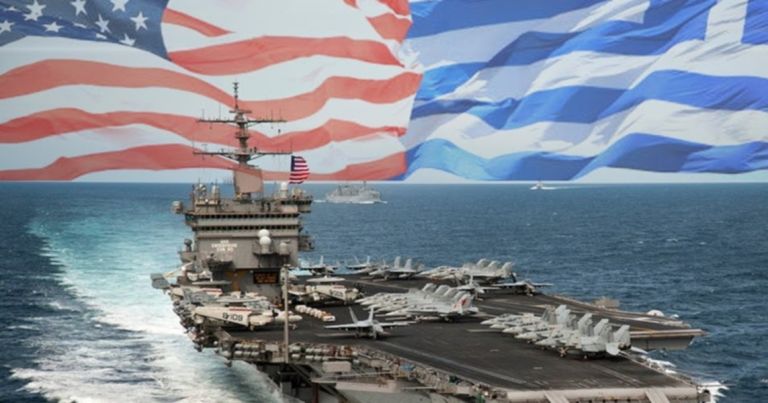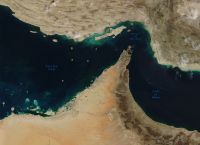U.S. Lawmakers Visit Greece: Strategic Investments in Souda and Larisa Bases

Πηγή Φωτογραφίας: AP PHOTO//U.S. Lawmakers Visit Greece: Strategic Investments in Souda and Larisa Bases
A recent visit by members of the U.S. House of Representatives Appropriations Committee to Greece highlighted Washington’s growing strategic interest in the region — and more specifically, in the military installations of Souda Bayand Larisa Air Base. The delegation, which arrived in Greece from August 8 to 12, held meetings with American and Greek military officials and inspected facilities as part of the Pentagon’s broader plan to enhance key operational hubs in southeastern Europe.
High-Level Delegation and Strategic Sites
The delegation was led by Republican Congressman Hal Rogers, Chair of the Subcommittee on Commerce, Justice, and Science. Alongside him were fellow Republicans Tom Cole, Chuck Fleischmann, Tony Gonzales, Mark Alford, and Dale Strong — all members of one of the most powerful committees in the U.S. legislative system, responsible for the allocation of federal funds.
The group began its tour at Souda Bay, where they visited the naval base at Marathi, engaged in briefings with U.S. officers stationed there, and reviewed upgrade plans. They later traveled to Athens, where they were received by senior Greek officials, including at the Prime Minister’s Office (Maximos Mansion).
Significant U.S. Investments in Defense Infrastructure
The Pentagon is expected to allocate $42 million solely for improvements in Souda, part of a wider funding stream aimed at bolstering overseas operational capacity. In Larisa, American forces have already established a steady presence with the rotation of fighter jets, transport aircraft, and unmanned aerial systems (UAVs) — underlining the strategic value of the site.
These developments are part of a broader U.S. effort to deepen defense cooperation with key allies in a shifting geopolitical landscape. For Greece, the investments present an opportunity not only to strengthen bilateral ties, but also to derive tangible operational and infrastructure benefits for its own Armed Forces.
MDCA Revision Under Consideration
The visit coincides with ongoing discussions between Athens and Washington regarding potential modifications to the Mutual Defense Cooperation Agreement (MDCA). While the agreement is multi-year, both sides have acknowledged the need for revisions — particularly to address issues such as:
- The deteriorated state of the Stefanos Vikos facility
- The inclusion of the Petrochori training range in Xanthi, which already hosts U.S. military exercises
Dual-Use Infrastructure and Local Benefits
Greek officials are seeking assurances that U.S. investments will also benefit Hellenic Armed Forces capabilities. In previous upgrades at Souda’s Marathi facility, for instance, parallel improvements were made to the adjacent Hellenic Navy base, providing a blueprint for future cooperative development.
Though the naval base has yet to be fully leveraged by the Hellenic Navy, shifting geopolitical dynamics in the Eastern Mediterranean may soon justify the permanent deployment of Greek naval assets in Souda, establishing it as a second major home port alongside Salamis.
Ongoing Equipment Talks: Island-Class Vessels, Switchblades & Chinooks
Beyond infrastructure, the U.S.–Greece defense partnership also includes equipment transfers and joint procurement initiatives:
- Switchblade loitering munitions: Greece has acquired these with 70% of costs covered by U.S. funding
- Island-class patrol boats: Talks are underway to supplement the current fleet of four with additional vessels from the U.S. Coast Guard
CH-47 Chinook helicopters: Greece currently operates 25 units, most of which are grounded due to aging systems and parts scarcity. The U.S. has proposed purchasing new CH-47F variants, though Greek defense officials are cautious, given the incoming delivery of Black Hawk helicopters starting next year.
A Deepening Strategic Partnership
The visit by U.S. lawmakers — following similar trips by Senators in recent months — reflects a deepening bilateral defense relationship. The Appropriations Committee’s involvement is particularly notable, given its power to shape funding priorities independently of the executive branch.
As Washington reevaluates its global basing strategy in 2026, Greece appears well-positioned to secure continued U.S. investments — not just in military installations, but in long-term strategic cooperation that enhances regional stability.
Source: pagenews.gr
Διαβάστε όλες τις τελευταίες Ειδήσεις από την Ελλάδα και τον Κόσμο






Το σχόλιο σας